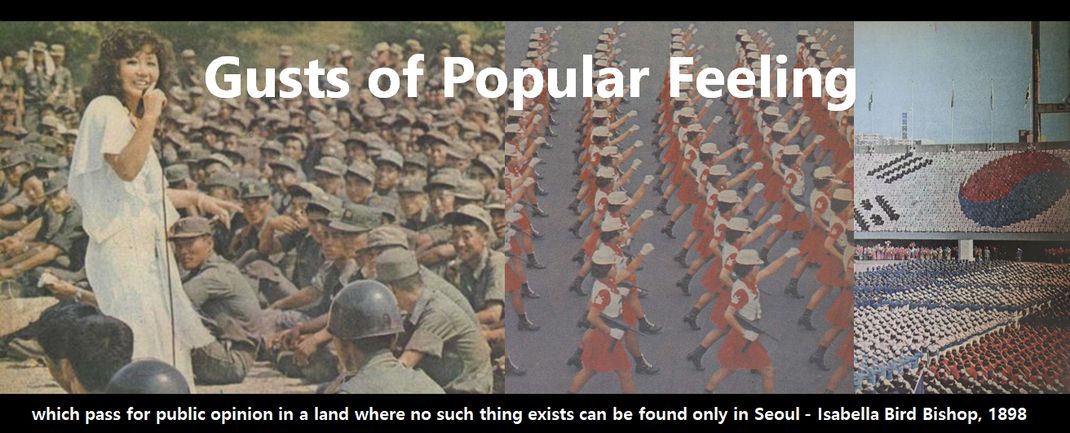I love this line:
The students are all foreign convicts at what the Ministry of Justice touts as the sole foreigner-only prison in the world.The only foreigner-only prison in the world is in Korea? Really?
“This program’s goal is to help foreign prisoners better understand Korea and adjust to living in Korea. We hope that foreign prisoners spread the good image of Korea when they get back to their country,” [professor Jung Yoon-ja] said after the class.The “We are one family” teaching sounds like a public school morals class. At any rate, the prison opened on February 23:
Good Morning Korea is a big part of each weekday morning here. Run in collaboration with Dankuk University, instructors from the university come in to teach prisoners the Korean language and culture through song and stories.
Officials feel that communication is very important and focus on teaching to improve the prison’s environment. The main morning teaching point is “We are one family.”
Long pushed by the ministry as being the proper response to rising incidences of crime committed by foreigners in Korea, Minister of Justice Lee Kwi-nam gave the opening address.As always, figures about foreign crime put forward by the government or lawmakers never puts the figures into any kind of context. This was interesting:
“The Cheonan foreigner-only prison is opened to give foreign prisoners specialized treatment. In light of the fact that foreign prisoners have different languages, customs, cultures and religions, we will give them humanitarian treatment according to universal values,” said Lee.
A press release sent out by the ministry after the opening highlighted the rise in crime, pointing out that since 2006, foreign crime has risen by 250 percent in Korea, though the Korean Institute of Criminology reported in 2007 that the foreigner crime rate in Korea was 1.4 percent, compared with the 3.5 percent rate among Korean citizens.
Adding to the list of reasons, however, was the rationalization that if prisoners from abroad are treated better in Korea, Korean prisoners in other countries may be treated better as well.Cullen Thomas, author of "Brother One Cell," an account of his three and a half years in Korean prisons, offers his opinion:
Thomas feels that segregating foreigners from Korean convicts is counterintuitive and causes cultural learning the prison is trying to foster to be negated by something artificial. [...] As for the programs offered at the prison, Thomas says they don’t ring true to him. He feels that most activities are just frivolities to pass the time. [...]Interesting all around. There are a lot of things going on here. While on the surface, it could seem like Korea cares a great deal about its foreign population, at the same time, no one is going to be surprised that there seems to be pride that the "only foreigner-only prison in the world" is in Korea. Of course, there isn't only xenophobia at work; this also smacks of the idea that foreigners are utterly alien and in need of "specialized treatment"; of moral superiority ("we will give them humanitarian treatment according to universal values"); of missionary-esque national self-aggrandizement ("We hope that foreign prisoners spread the good image of Korea when they get back to their country"); of delusion (see previous quote); of wanting to hide the "native underbelly" of Korea from foreigners and in its stead present them with something "artificial" (again, see previous quote); and of (hoped for) quid pro quo ("if prisoners from abroad are treated better in Korea, Korean prisoners in other countries may be treated better as well").
Delving further into his thoughts Thomas says that “at work are some powerful forces; national pride, not wanting to reveal the native underbelly to foreigners, wanting to treat foreigners -- even law-breaking ones -- with some privilege or at least with separate consideration, to treat them somehow -- even in prison -- as guests in Korea.
“During my time I often felt that the authorities, from individual guards all the way up to the justice ministry itself, didn‘t quite know what to do with us. I get the feeling that this is still the case.”

And to top it all off, the need for foreigner-only prisons is justified by claiming that foreign crime is rising at an incredible rate, without ever putting such figures into the context of the growing foreign population or comparing it to the Korean crime rate.

3 comments:
It sounds like justification and defense for the various xenophobic actions and laws of Dae Han Min Guk.
“This program’s goal is to help foreign prisoners better understand Korea and adjust to living in Korea. We hope that foreign prisoners spread the good image of Korea when they get back to their country,” [professor Jung Yoon-ja] said after the class.
Laugh out loud. Once their prison sentence - no, their length of being a GUEST! - is complete, they're sent home.
Proof that the higher-ups in Korea have more interest in appearing good than actually solving a problem.
It opens with a description of inmates singing along to a K-pop song "aided by a little ball that bounces from word to word on a big screen at the head of the class. The teacher motions her hand to her ear, inviting the convicts to sing louder." I wonder what the suicide rate is there.
Now, that's a fine piece of gallows humor. Hopefully that hasn't become illegal. Although, what did they call them? The Busan-nine??
Reading that article, I was strongly reminded of the Simpsons episode where they go to Japan and Homer & Bart are imprisoned: http://en.wikipedia.org/wiki/Thirty_Minutes_over_Tokyo#Plot
Post a Comment